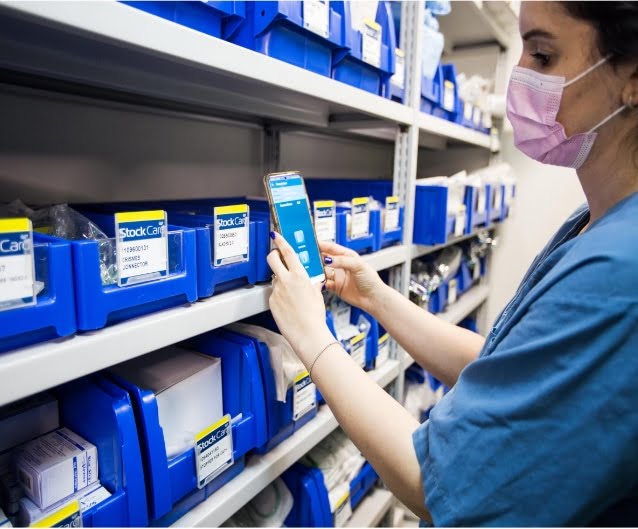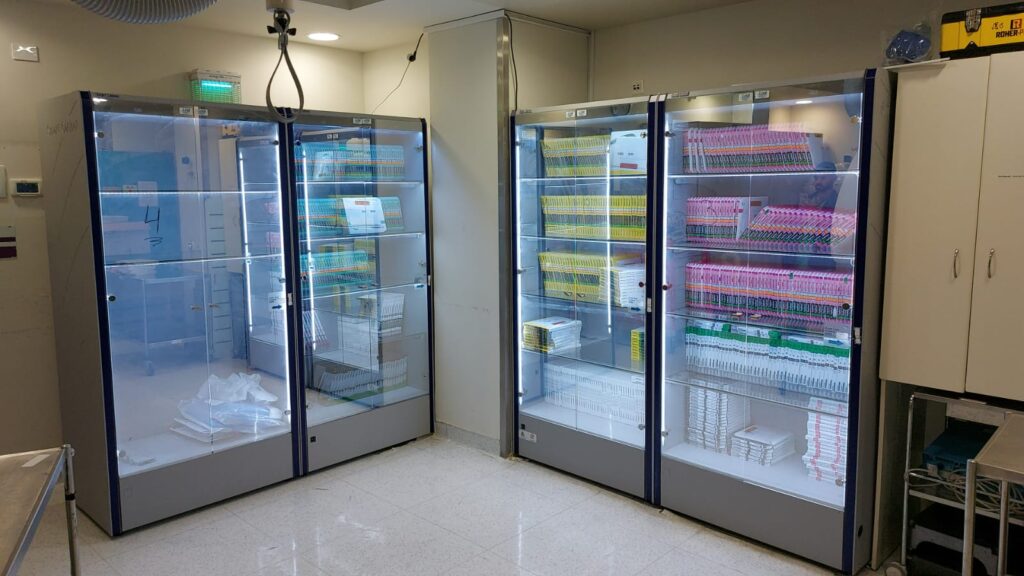What’s inside:
This blog post explores the negative impacts of inaccurate inventory data on healthcare supply chains and the benefits of investing in high-quality data solutions. It covers topics such as:
- The costs of bad data
- The advantages of good data
- Data management strategies
- Technology’s role in improving supply chains
Are you on a quest to ditch bad data and improve your healthcare supply chain management? It’s quite a trek, but as with any journey, an accurate GPS can navigate you along the right path.
Far too often healthcare supply chain decisions are based on inaccurate or incomplete inventory data, and this hinders rather than helps healthcare efficiency.
This blog explores the importance of high-quality inventory data, as your supply chain GPS. Clean, timely data shines a light on your inventory, highlights areas of efficiency, and flags up trends.
The Impact of Bad Data in the Healthcare Supply Chain
Let’s start by looking at the impact of bad data.
Lack of inventory vision leads to shortages, stock-outs and excess stock, all of which have an impact on healthcare efficiency:
- Delayed patient care: Without the necessary supplies, procedures may be delayed, impacting patient outcomes and satisfaction.
- Increased costs: Emergency purchases or expedited shipping can be significantly more expensive than planned orders.
- Wasted resources: Overstocked items take up valuable storage space and surplus stock means that expiry management issues are common, with many items expiring on the shelves prior to usage.
- Reduced staff productivity: Staff may spend excessive time searching for missing items or verifying inventory accuracy.
- Low quality data: Incomplete or incorrect data collection feeds bad data into analytical outputs, leading to flawed decisions.
These issues highlight the crucial role of reliable data in ensuring supply chain efficiency and optimal healthcare delivery.

Ban Bad Data and Discover the Power of a Supply Chain GPS
Just like a reliable GPS, accurate and timely inventory data steers your healthcare facility in the right direction. Here’s how:
- Reduced Costs: By knowing exactly what supplies you have on hand, you can avoid unnecessary purchases, optimize contracts, and improve purchasing discounts.
- Improved Tracking: Ensuring consumption is fully documented is vital for demand-driven procurement, compliant clinical records, operating room documentation, and optimized charge capture.
- Improved Efficiency: Accurate stock levels mean you can locate items quickly and efficiently, minimizing time wasted searching for missing medical devices, implants, and supplies.
- Better Control: RFID smart cabinet technology will keep track of your inventory providing automated expiry management – prioritizing nearest-to-expire items and therefore preventing loss and unnecessary orders of items in stock.
- Enhanced Patient Care: Ensuring continual supplies ensures you can provide the necessary inventory to deliver the prompt, high quality patient care.
Bad data destroys supply chain vision, but if you get data collection right, your data-driven decision can lead to inventory accuracy.

Prioritizing Data Quality: Optimizing Your Supply Chain Journey
Let’s take a quick look at three stages of data management and how they support inventory optimization.
Data collection: Implement AI software and smart hardware to capture real-time, trustworthy, inventory data,
Data processing: Ensure your system achieves enterprise-wide, standardized data, in order to assure data quality.
Data analysis: Regularly analyze inventory data to identify trends, predict future needs, and adjust PAR-levels and ordering patterns.
There are several steps to optimizing supply chain data:
- Collect full and accurate data across your network.
- Process this data into metrics, reports and insights.
- Use data to drive decision making.
- Continue to review and act on data in order to respond to fluctuations.
Leveraging Technology for Better Decisions
Technology plays a vital role in navigating healthcare providers towards data-driven decisions. Ensuring high quality data feeds into your system underpins the usefulness of the data outputs.
By prioritizing data quality and investing in the right technology, healthcare facilities can turn their supply chains into a responsive, demand-driven system that continually responds to changing healthcare needs.
Looking for Your Supply Chain GPS?
AI supply chain technology is the GPS that can guide your healthcare organization towards a future of streamlined operations, reduced costs, and best-quality patient care.
It’s time to get rid of bad data and ensure clean, high quality data informs your supply chain decision making.
Contact us to navigate your way to efficiency through high quality data solutions.






